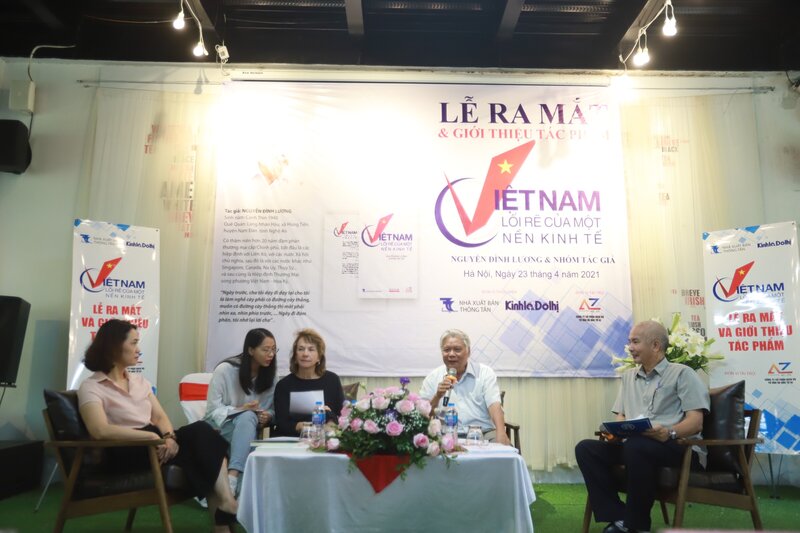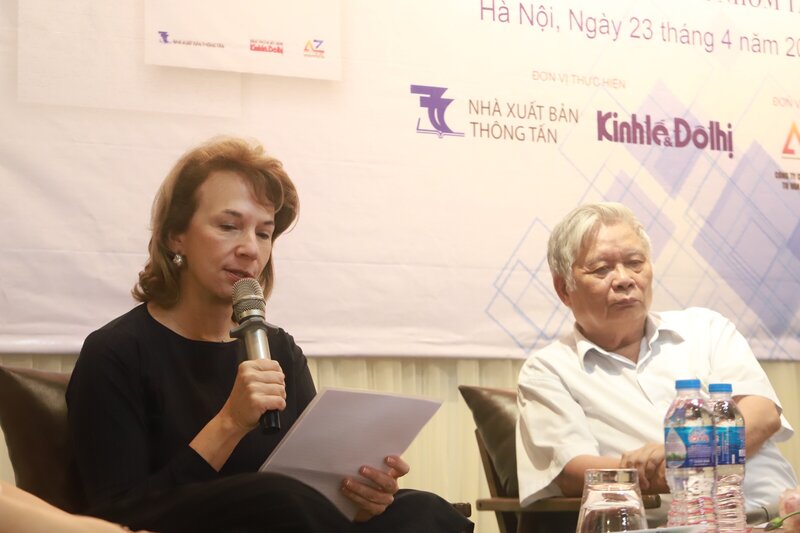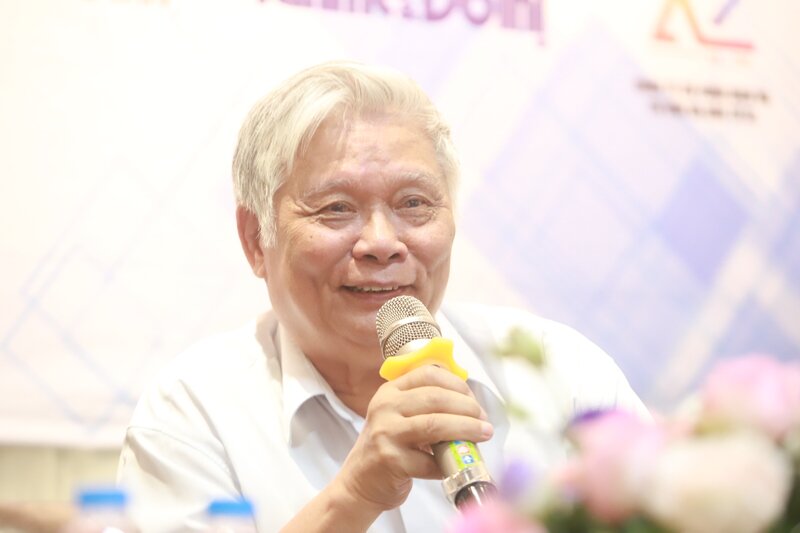A trade deal turns former foes into partners
The US – Vietnam Bilateral Trade Agreement has been a fundamental foundation in economic relations between the two countries, providing Vietnamese traders with opportunities to access to the world's largest economy and open door for global economic integration.
Vietnam's Chief Negotiator of the US – Vietnam Bilateral Trade Agreement (BTA) Nguyen Dinh Luong today [April 23] launched a book tiltled "Viet Nam – Loi re cua mot nen kinh te” (Vietnam - New Pathway of an Economy) in Hanoi, sharing with readers his version of ups and downs behind the historic agreement, and more importantly, how it turns former foes into partners.
In a letter sent to Luong at the book launching ceremony, US Chief Negotiator for the BTA Joseph Damond wrote: "It was a totally unexpected experience for me that eventually you and I would not be adversaries across the table, but almost become partners with the same mission.”
“That mission was to build mutual understanding, so that we could craft an agreement of mutual benefit. We became like brothers,” he noted.
| Overview of the book launch. Photos: Quang Tan |
Chairwoman of the American Chamber of Commerce in Vietnam (AmCham) Virginia Foote, who read out the US Chief Negotiator's letter at the event, said: “With this book, I and Joe [Joseph Damond] are very excited to relive this history again."
| AmCham Chairwoman Virginia Foote reads letter from US Chief Negotiator for the BTA Joseph Damond |
Regarding the BTA, Foote told Hanoitimes the deal has been a fundamental foundation in economic relations between Vietnam and the US. “Later on, it proved to be the most important document for our relationship,” she added.
More than 20 years since the signing of the BTA [July 13, 2000], the book shed light from the Vietnamese side on the story behind the negotiation process that took five years and 11 negotiation rounds to complete.
The move later became a major turnaround for the Vietnamese economy at that time, providing local traders with opportunities to access to the largest economy in the world, and more importantly, an open door for global economic integration.
| Vietnamese Chief negotiator for BTA Nguyen Dinh Luong |
During the five-year period after the normalization in 1995, bilateral trade rose modestly from US$450 million to US$1.09 billion. However, trade turnover surged by an average of 20% annually since the BTA kicked in.
In 2020, trade revenue between Vietnam and the US stood at US$76.4 billion, a 76-fold increase against 2000 and 170-fold compared to 1995. As such, the US remained Vietnam’s largest buyers and accounted for 30.5% of the latter’s exports.
In his own book 13 years after the signing of the BTA, titled Give Trade a Chance, Joseph Damond revealed his biggest impression throughout the negotiation was that two sides of little understanding of each other had learned to work together to build mutual trust and sympathy.
Former General Director of the Vietnam News Agency Ho Tien Nghi said the book gave readers insight on various fields from economy, trade, politics to global integration.
“This makes people change their mindset and thoughts on issues facing Vietnam on the road towards prosperity,” he said.
| Editor in Chief of the Economic and Urban Newspaper Nguyen Minh Duc speaks at the launch. |
Editor-in-Chief of the Economic and Urban Newspaper Nguyen Minh Duc referred to a statement from Chairman of the Party Central Committee’s Economic Commission Tran Tuan Anh that there have not been any trade deal like the BTA that not only addresses trade, investment and services, but also leads to a complete revision and perfection of Vietnam’s legal framework for opening the economy to the world.
“Right after the signing of the BTA, Vietnam’s National Assembly started a process of revising nearly 300 laws to ensure their compatibility with the BTA and international laws,” said Duc, saying this shows the deal's significant impacts on Vietnam’s policymaking.
AmCham Chairwoman Foote added while the BTA has made a difference for Vietnam, “it also made a big difference in the US, of how to go from war to peace, and from enemy to friendship.”
“It was a very important process for both countries,” she stressed.
The book was jointly launched by the Economic and Urban Newspaper and Vietnam News Agency Publishing House, with financial support from AZ Vietnam.
















